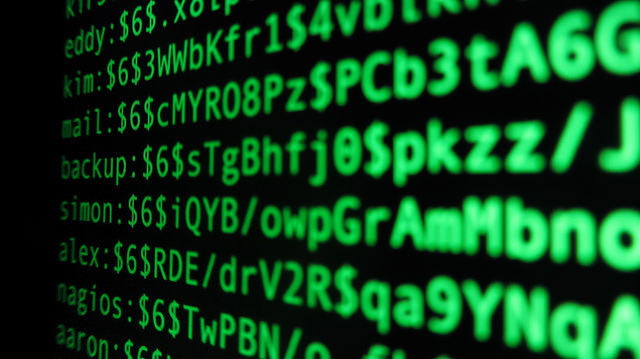Dezinformatsiya

I recently wrote a review on Active Measures by Thomas Rid – which helped me to solidify my thoughts on social media, and the impact it has on society. While Active Measures is focused on disinformation campaigns, it also speaks to the vulnerabilities in humans that allow these campaigns to work. Disinformation is a substantial issue today, and not just in terms of election interference, public health, or international relations – but also in much smaller scale unorganized efforts to alter perception.
Read more…Utilitarian Nightmare: Offensive Security Tools

Or: Ethical Decision Making for Security Researchers.
There has been much discussion recently on the appropriateness of releasing offensive security tools to the world – while this storm has largely come and gone on Twitter, it’s something I still find myself thinking about. It boils down to a simple question, is it ethical to release tools that make it easy for attackers to leverage vulnerabilities that they wouldn’t otherwise be able to?
Read more…Bitcoin is a Cult

The Bitcoin community has changed greatly over the years; from technophiles that could explain a Merkle tree in their sleep, to speculators driven by the desire for a quick profit & blockchain startups seeking billion dollar valuations led by people who don’t even know what a Merkle tree is. As the years have gone on, a zealotry has been building around Bitcoin and other cryptocurrencies driven by people who see them as something far grander than they actually are; people who believe that normal (or fiat) currencies are becoming a thing of the past, and the cryptocurrencies will fundamentally change the world’s economy.
Read more…Looking for value in EV Certificates
When you are looking for TLS (SSL) certificates, there are three different types available, and vary widely by price and level of effort required to acquire them. Which one you choose impacts how your certificate is treated by browsers; the question for today is, are EV certificates worth the money? To answer this, we need to understand what the differences are just what you are getting for your money.
The Three Options
For many, the choice of certificate type has more to do with price than type – and for that matter, not that many people even understand that there are real differences in the types of certificates that a certificate authority (CA) can issue. The key difference between the options is how the requester is verified by the CA prior to issuing the certificate. Here is a brief overview of the options available.
Read more…On the need for an open Security Journal

The information security industry, and more significantly, the hacking community are prolific producers of incredibly valuable research; yet much of it is lost to most of those that need to see it. Unlike academic research which is typically published in journals (with varying degrees of openness), most research conducted within the community is presented at a conference – and occasionally with an accompanying blog post. There is no journal, no central source that this knowledge goes to; if you aren’t at the right conference, or follow the right people on Twitter, there’s a great chance you’ll never know it happened.
Read more…Threat Modeling for Applications

Whether you are running a bug bounty, or just want a useful way to classify the severity of security issues, it’s important to have a threat-model for your application. There are many different types of attackers, with different capabilities. If you haven’t defined the attackers you are concerned about, and how you deal with them – you can’t accurately define just how critical an issue is.
There are many different views on threat models; I’m going to talk about a simple form that’s quick and easy to define. There are books, tools, and countless threat modeling techniques – it can easily be overwhelming. The goal here is to present something that can add value, while being easy to document.
Read more…When Hashing isn’t Hashing

Anyone working in application security has found themselves saying something like this a thousand times: “always hash passwords with a secure password hashing function.” I’ve said this phrase at nearly all of the developer events I’ve spoken at, it’s become a mantra of sorts for many of us that try to improve the security of applications. We tell developers to hash passwords, then we have to qualify it to explain that it isn’t normal hashing.
Read more…“New Atheism” & The Philosophy of Atheism
A recent (very) public fracas between Richard Dawkins and Glenn Greenwald (both people who I respect, though for rather different reasons) left me thinking about the direction that the “New Atheism” movement is taking, and where atheism itself should be going. Religion is a difficult topic to discuss, as it evokes such passion that you often move past logic into purely emotional discussions. Some atheists, unfortunately, are just as zealous that they too lose sight of logical discourse.
Read more…The Manifesto

As a child, all of my time was spent reading – at the age of 8 or 9 I was staying up all night reading the likes of Dickens and Verne, at 11 or 12, I was tearing through encyclopedias, medical texts, and anything else I could get my hands on. I had a love for learning, for understanding, a desire to know everything, and an insatiable curiosity that often led me in interesting directions (in that ancient curse “may you have an interesting life” kind of way). Then one day my father came home with a large box – and my world was changed forever.
Read more…Responsible Disclosure Is Wrong
The debate around how, where, and when to disclose a vulnerability – and of course to whom – is nearly as old as the industry that spawned the vulnerabilities. This debate will likely continue as long as humans are writing software. Unfortunately, the debate is hampered by poor terminology.
Responsible disclosure is a computer security term describing a vulnerability disclosure model. It is like full disclosure, with the addition that all stakeholders agree to allow a period of time for the vulnerability to be patched before publishing the details.
Read more…